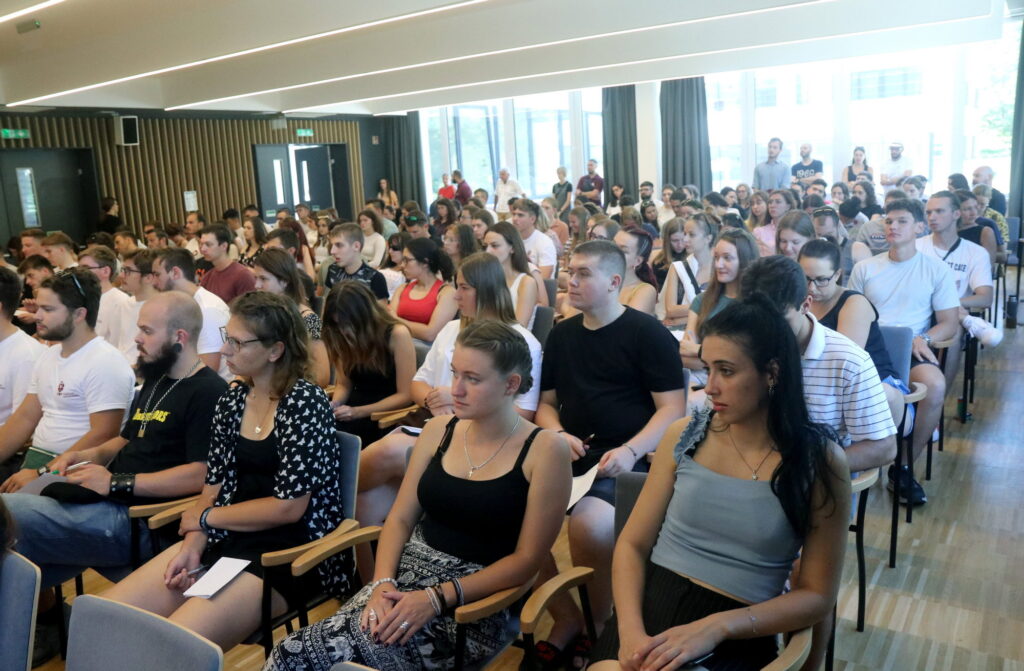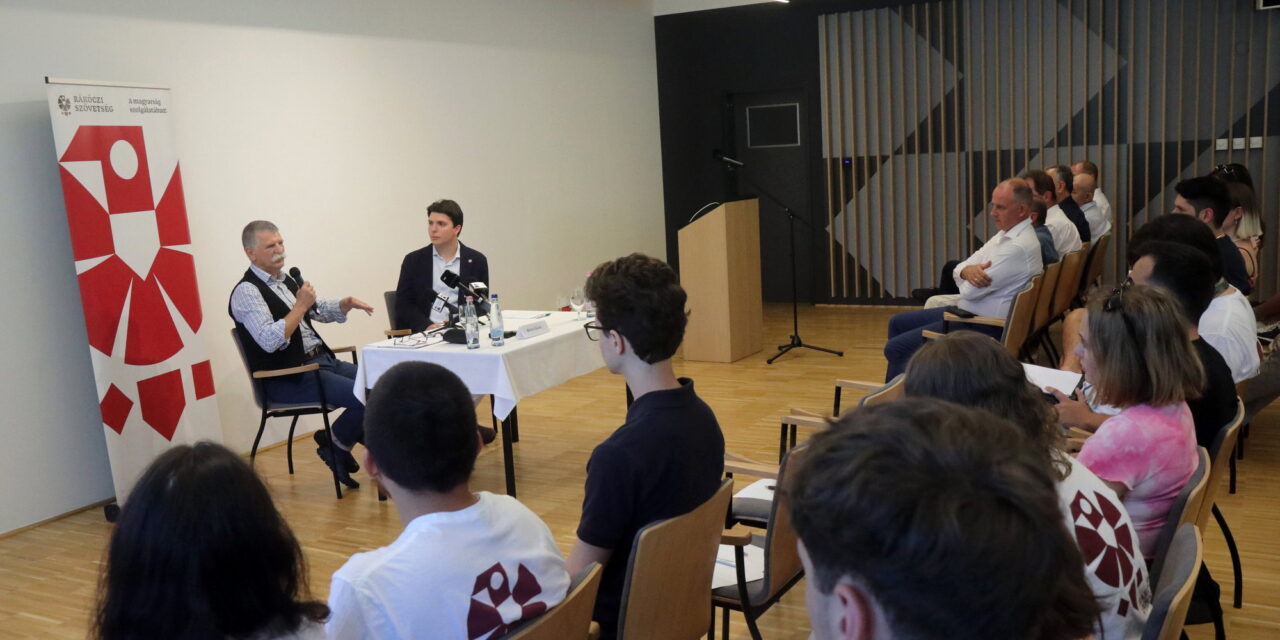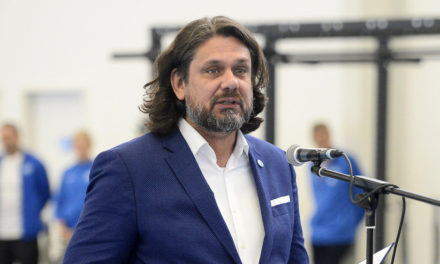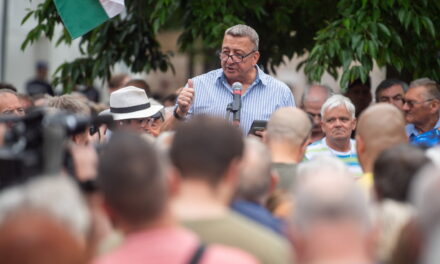The purpose and meaning of Hungarian politics is to ensure the survival of the Hungarian nation and the improvement of its quality of life, said the Speaker of the Parliament on Monday in his presentation at the Rákóczi Association Összmagyar University Camp in Sátoraljaújhely, Borsod-Abaúj-Zemplén County.
László Kövér explained: looking back on the hundreds of years of Hungarian history, it is not difficult to see that this was always the goal. Everything from the time of Saint Stephen through the Turkish occupation to the present day
The aim of the "good and better" political generation was to remain
he added.
In such a historical perspective, there is no smaller and cannot be a greater ambition of a nationally committed government in Hungary than to ensure the survival of the nation. Especially in a world that is now unfolding, to which even wars are no stranger, emphasized the Speaker.
He put it like this:
all nations, including the nations that gave rise to the majority of the successor states of the Carpathian Basin, are in danger of being "liquidated" in a cultural sense, but also physically.
He added: we don't necessarily have to feel that we are the only ones in constant danger. He cited Ukraine as an example, in his opinion, the consequences of what is happening there today can be compared to the consequences of 150 years of Turkish subjugation, and the war has only been going on for two years. A quarter of Ukraine was bombed, and some of the residents, especially young people, fled or emigrated before the outbreak of the war, and the question is who will rebuild the country when the fighting ends, he added.
László Kövér emphasized:
the first prerequisite for survival is to have children.
For this, it is not only necessary to financially support families and start a family, but also mentally and spiritually to transform the environment in which young people think about having children, he noted.
In response to a moderator's question, the speaker said that the most important virtue of the Visegrád Quartet cooperation and the key to its long-term survival is that they discuss issues in which there is a common interest and the possibility of agreement. He added that cooperation is the most useful, among others, in that it helps the economy of Central Europe to be competitive, and thus the four dominant Central European countries - Slovakia, the Czech Republic, Poland and Hungary - can act with sufficient weight in the European Union in the political sense and in the reconciliation of interests. For this, the west-east economic connection system must be supplemented with a north-south economic, infrastructural connection, said László Kövér.
In relation to the national communities, the President of the Parliament stated that there are political boundaries drawn by history. The significance of these should be reduced not only in the sense of interoperability, but also so that "those involved in cultural contact do not realize that they are in another country," added László Kövér.
He highlighted it as a first step
the word "minority" should be forgotten
, since - as he said - it was not by chance that we returned to the use of the word "nationality", breaking with the international use of the word. He added that the government takes into account the efforts against the Hungarian national communities, speaks and acts against them if possible.
The speaker said that the more threads that connect two countries, the better they can improve their nationality policy.
László Kövér said that since 1990, the number of Hungarians in Vojvodina has decreased by less than half. He emphasized that in order for the motherland to survive, the separated parts of the nation must also survive, and in order for the Hungarians abroad not to disappear from their homeland, it is necessary for young people to prosper locally.

Participants listen to the lecture of László Kövér, the President of the National Assembly, at the Összmagyar University Camp organized by the Rákóczi Association in Sátoraljaújhely, at the Rákóczi Hotel, Camp and Event Center on August 14, 2023.
MTI/János Vajda
In front of the speaker, István Pásztor, the president of the Hungarian Association of Vojvodina, participated in a panel discussion, during which he spoke, among other things, about Hungarian-Serbian relations and the situation of Hungarians in Vojvodina, Serbia's chances of joining the European Union, and the state of education in the country.
The President of the Parliament was followed by László Fritsch, CEO of MVM CEEnergy Zrt., who gave a presentation on the situation of the European gas market and the effects of the war in Ukraine on the natural gas market. He spoke about the company's market position, the main areas of use and trade of natural gas, as well as the defining events and future of the natural gas market.
The series of lectures was concluded by Lajos Kollár, the president of the Batthyány Circle of Professors, who also spoke about their joint work with the Rákóczi Association and the sailing camps in the Carpathian Basin that they started together.
He touched on the work of the Batthyány Circle of Professors, and spoke about the situation of Hungarians abroad, togetherness and global problems such as illegal migration.
According to the Rákóczi Association, more than 300 young Hungarians from 18 countries came to the Összmagyar University Camp on Sunday. At the event, which lasts until Thursday, students can participate in lectures, excursions, and sports and cultural programs.
MTI
Cover image: László Kövér, the president of the National Assembly, will give a lecture at the Összmagyar University Camp organized by the Rákóczi Association in Sátoraljaújhely, at the Rákóczi Hotel, Camp and Event Center on August 14, 2023. Zsolt Szilágyi is also the main organizer. MTI/János Vajda













